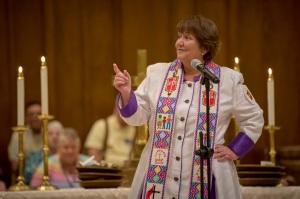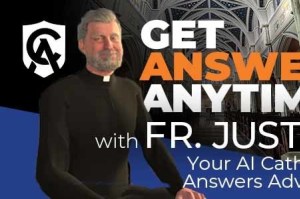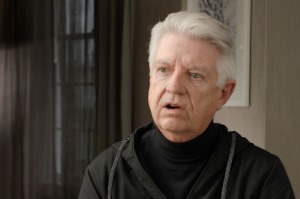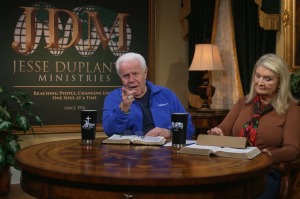Reformation Turns 500: Authors Explain 'What Remains at Stake' Between Catholics, Protestants
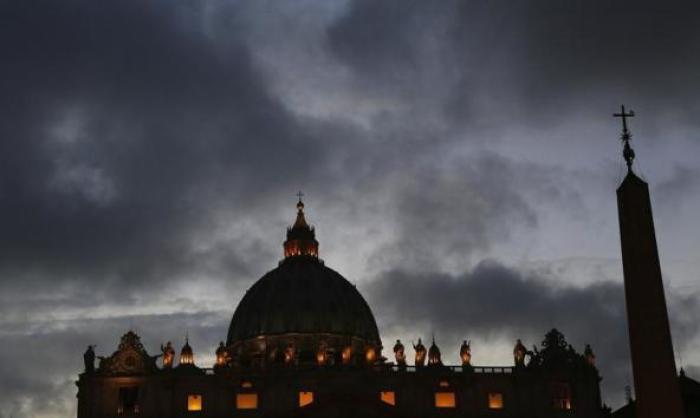
While many have seen a remarkable togetherness occurring among evangelical Protestants and Roman Catholics ahead of Protestantism's 500th anniversary, important institutional and theological issues still separate us, according to two Wesleyan scholars. Such significant ground cannot be glossed over, they explain, and the debates that arise are worth having.
Jerry Walls and Ken Collins, authors of Roman But Not Catholic: What Remains at Stake 500 Years After the Reformation, released on Tuesday, present a substantive response to a growing number of Catholic polemical writers who are urging evangelical Protestants to return to the Church of Rome.
Both in a recent phone interview with The Christian Post and throughout the book's 410 pages, the co-authors repeatedly stress that they consider Roman Catholics their fellow brothers and sisters in Christ and that their aim is not to widen the existing theological chasm. They maintain, however, that conversations where difficult questions are raised about these centuries-old, often painful divides are deeply needed.
Walls and Collins contend that it's not the "Catholic" part that stands in the way of real unity, but the "Roman" part, as evidenced by the book's title. Roman Catholics often criticize Protestants over "sola scriptura" (scripture alone), which they think is unworkable and has led to endless schisms. But the authors reply that Rome's "sola Roma" approach comes with serious problems of its own and does not make them immune from division.
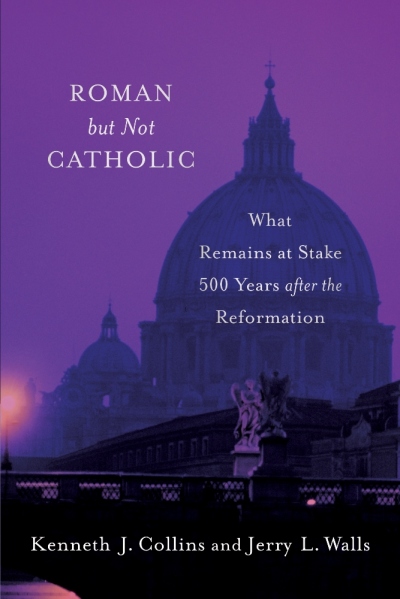
Other than the Roman Catholic distinctives about Jesus' mother Mary and her role in the life of the Church, the office of the pope is perhaps the most profound source of division between Catholics and Protestants, a subject explored extensively in Chapter 11, "The Papacy: Shaking the Foundations." Collins, who was raised Roman Catholic but became a Protestant in college and is now a professor of historical theology at Asbury Theological Seminary in Wilmore, Kentucky, believes this is an area where the Roman Church is committing the error of anachronism.
"[Rome] takes later historical products and reads them back into the first century where they don't belong," Collins told CP, regarding the office of the pope. Roman Catholics assert that Peter was the first pontiff to lead the Church. But the papacy is actually "an office based on a constellation of claims that developed over time," Collins says, and it took centuries for it to come into place.
Several elements of the Roman church hierarchy were not even on the scene for there to have even been anything remotely close to a pope and the powers he exercises, Collins continued. The Asbury professor considers it "debatable" as to who the first actual pope was.
"It's like saying, for example, that the United States of America, during the 13th century, didn't have many people," Collins explained. "Well, that's a nonsense sort of statement because America didn't exist in the 13th century."
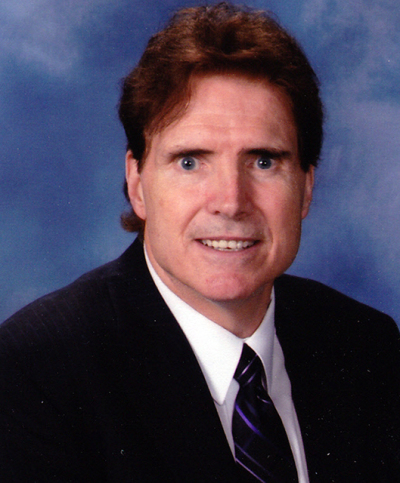
What is more, Walls interjected, is that the Roman Catholic Church maintains that the papacy is the unifying center of the Christian world today, when not only is that not the case for Protestant believers but also Eastern Orthodox Christians. The rumblings over Pope Francis and the recent controversy over "Amoris Laetitia" — a 2016 papal exhortation that addresses the Church's stance on access to communion, divorce, sexual mores, and pastoral practice — demonstrate that such division exists even within the Roman Catholic faith.
And aside from current disputes, the Roman Church may purport to be united but is for all practical purposes divided, Walls noted.
"Most [Roman Catholic] laity believe things that are quite out of sync with official Church teaching," Walls said.
"Functionally, the Roman Catholic Church is the world's largest pluralist Christian denomination comparable to many liberal Protestant denominations."
Collins agreed to join Walls in co-writing Roman but Not Catholic to contribute his historical knowledge to the project. He told CP that he initially resisted the invitation from Walls but decided to take part when he considered how the Roman Church stands in negative judgement of his evangelical and Pentecostal peers in Latin America. Rome's ill feelings toward them there and elsewhere are born out of an understanding of their ecclesiology, their doctrine of the Church — that they are the "one true Church." At that point, being a co-author of the book became a "sacred calling for me," he added.
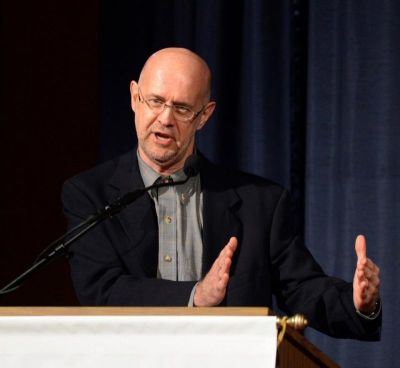
Walls, who is a professor of philosophy at Houston Baptist University and was one of the originators of the Reforming Catholic Confession — a Protestant affirmation of the essentials of the Christian faith published on Sept. 12 — noted that, like the Confession, their book intends to recover and reclaim the word "Catholic," a term Rome has appropriated for itself but in fact belongs to faithful Christians of every stripe.
"Certainly, our book is pointedly critical in one sense of the word but it's ultimately one that aims for unity, and to attack and critique the barriers that divide Christians that should not divide Christians," like the Lord's Supper and who can be anointed with oil on the deathbed, Walls said.
"And ultimately we want to promote a vision of the Holy Catholic Church that is more expansive and larger than the Roman Church, the Eastern Orthodox Church, or the Protestant Church. It's bigger than all of those."
Christian unity is going to come about when Christ is at the center, Walls continued, when "all traditions recognize and respect each other fully as brothers in Christ, welcoming each other at the communion table, not because of your views of ecclesiology or sacramental theology but because of your commitment to Christ and your recognition that as followers of Christ he has called us to celebrate this together as a sign of unity."
But until both Rome and Eastern Orthodoxy stop fighting over who is the "one true Church" and recognize that the Church of Jesus Christ is much bigger than any of them, Walls added, no real chance of unity is possible.
For Roman Catholics, ecclesiology seems to trump everything, Collins noted, even agreement on theological matters important to Protestant evangelicals like the doctrine of justification.
Collins emphasized: "It almost seems that in terms of Rome there is not only sacred Scripture, revelation that has been given to us by the Holy Spirit, but that the Holy Spirit has also given a particular polity and it's that second move that this really does come from God."
Unlike the official Roman Catholic governing body, the Magisterium, which Roman Catholics regard as supremely authoritative, Protestants do not believe that a specific, divinely-ordained Church structure carries the same weight and status as Scripture.
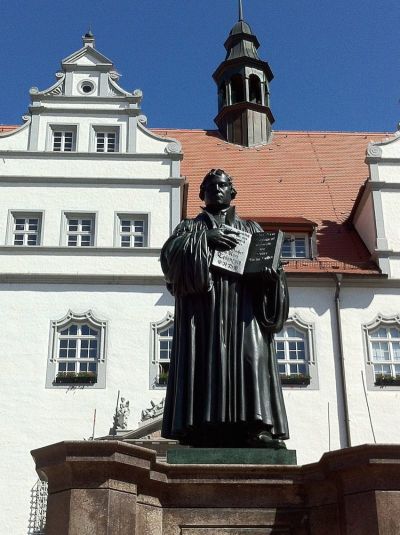
In Chapter 14, "Protestants in the Crosshairs," Walls and Collins address in detail the phenomena of ardent Catholic apologists whose works have become popular, such as Protestant-turned-Catholic Devin Rose's The Protestant's Dilemma. Another book they mention, Surprised by Truth, boasts of selling over 250,000 copies on its cover and contains 11 testimonials of former Protestants who became Roman Catholic. The foreword for this book was penned by Calvinist-turned-Roman Catholic apologist Scott Hahn, who refers to the former Protestant writers describing their spiritual journey to Rome as "theological step-children who have finally come home." Walls and Collins unpack how these popular Catholic apologetics also contain a considerable amount of imprecise and uncharitable language toward evangelicals and heavy, all-or-nothing, Rome-centric reasoning.
Protestants who read these works are likely exploring "conversion" to Rome already, they write, and they caution those who are exploring to avoid what they call "Roman fever," a symptom of which is the tendency to compare the best of Roman Catholicism with the worst of Protestantism. Snarky lines like "We have Dante's Divine Comedy, and you all have the Left Behind series," are but one example of this, Walls recalled once hearing a Roman Catholic friend quip.
Despite all of this and other areas of conflict, Walls and Collins conclude Roman But Not Catholic by reiterating their affirmation of the genuine faith of Roman Catholic believers around the world, and prayerfully appeal to John 17:20–21, Jesus' prayer that all those who would follow Him would be one, as He and the Father are one. They praise Pope Francis' recent comments toward more inclusive practices in celebrating the sacrament of Holy Communion in hope that Protestants currently barred from receiving can one day partake, even if his words were said in the midst of lingering doubt and ambiguity.
"Perhaps the pope will take further steps in this same direction, during the pivotal 2017 year, to allow us to celebrate the fundamental reality that we are all characterized by one Lord, one faith, one baptism. We surely hope so. The advance of world Christianity on occasion and its witness to the world would be epic," the authors write.
Until such a time or some other breakthrough moment occurs, the disagreement will no doubt continue as it relates to how the disunity in this life will transition to unity in the next, they explain.
"Indeed, we are all getting closer to that glorious reality by God's grace as we live out our Christian lives from decade to decade, walking in the obedience of faith, encouraged by hope and empowered by love."
















